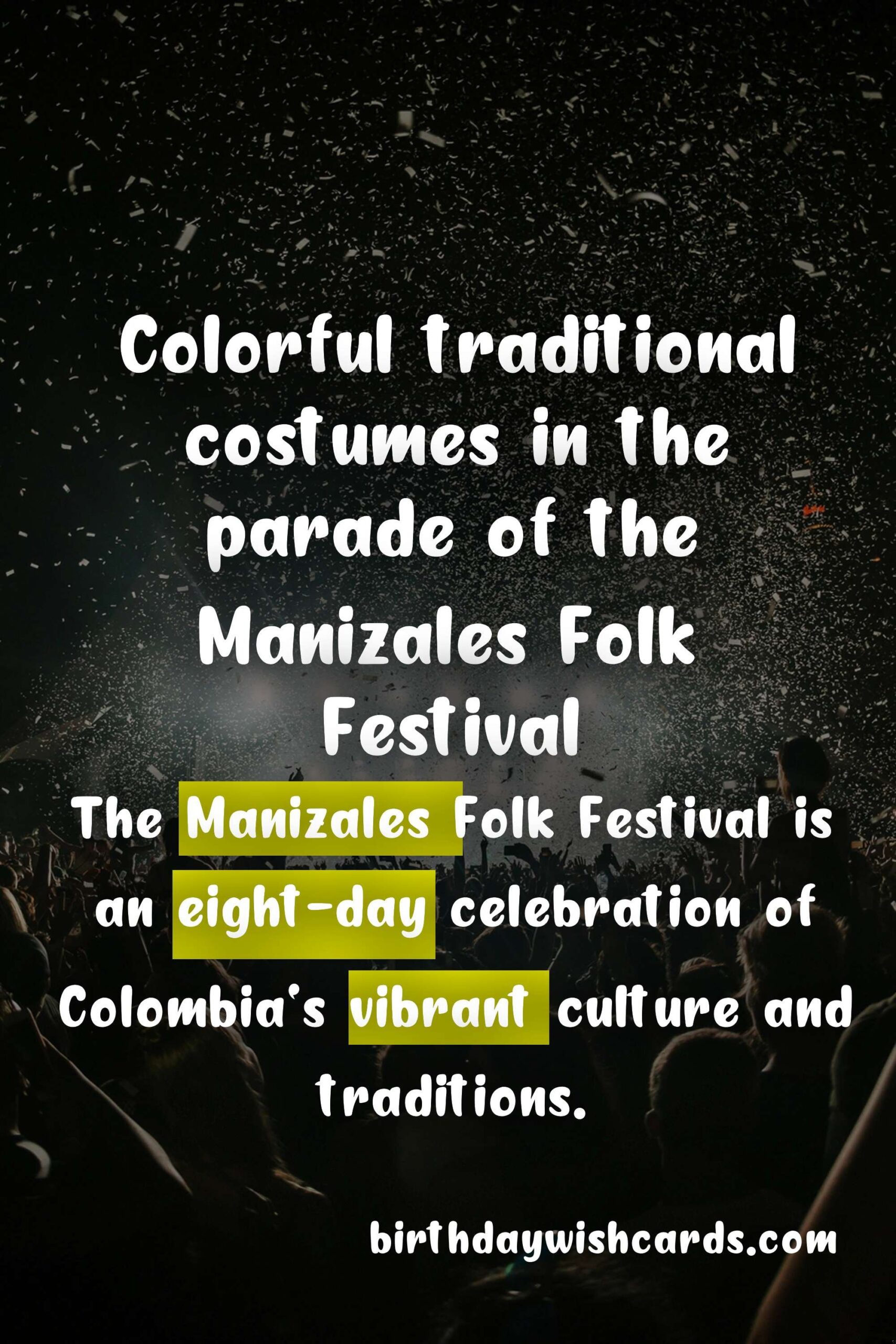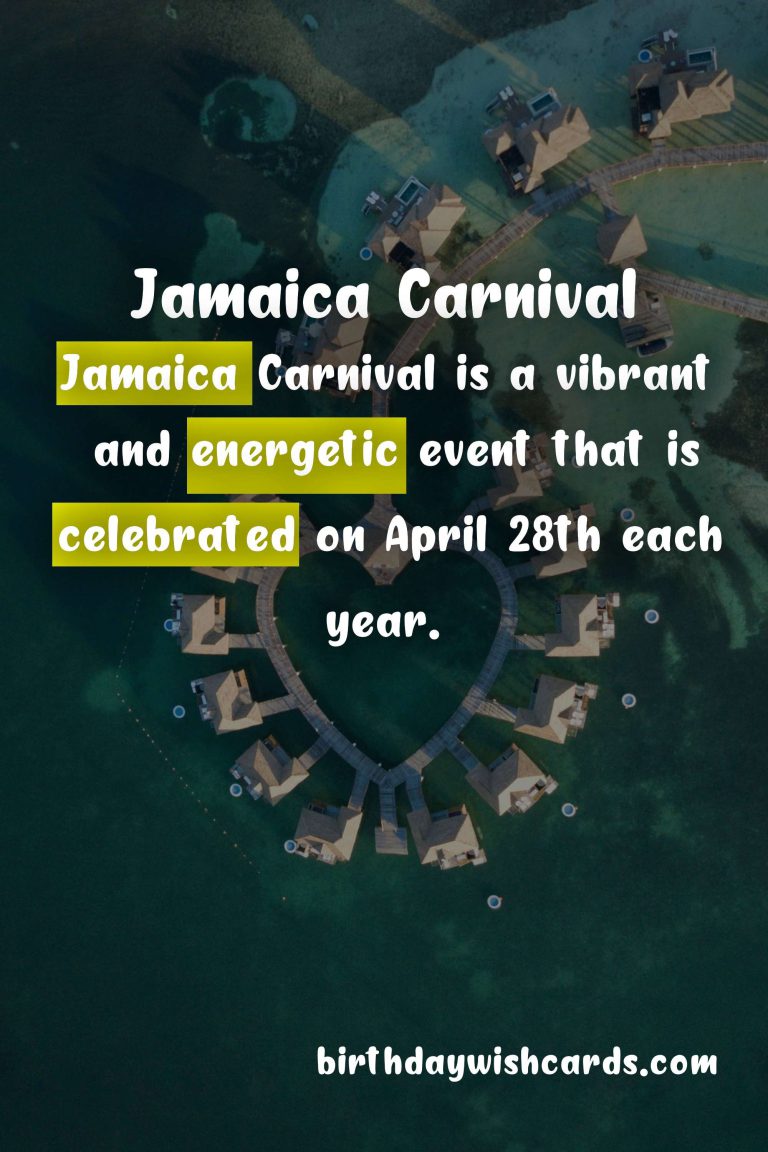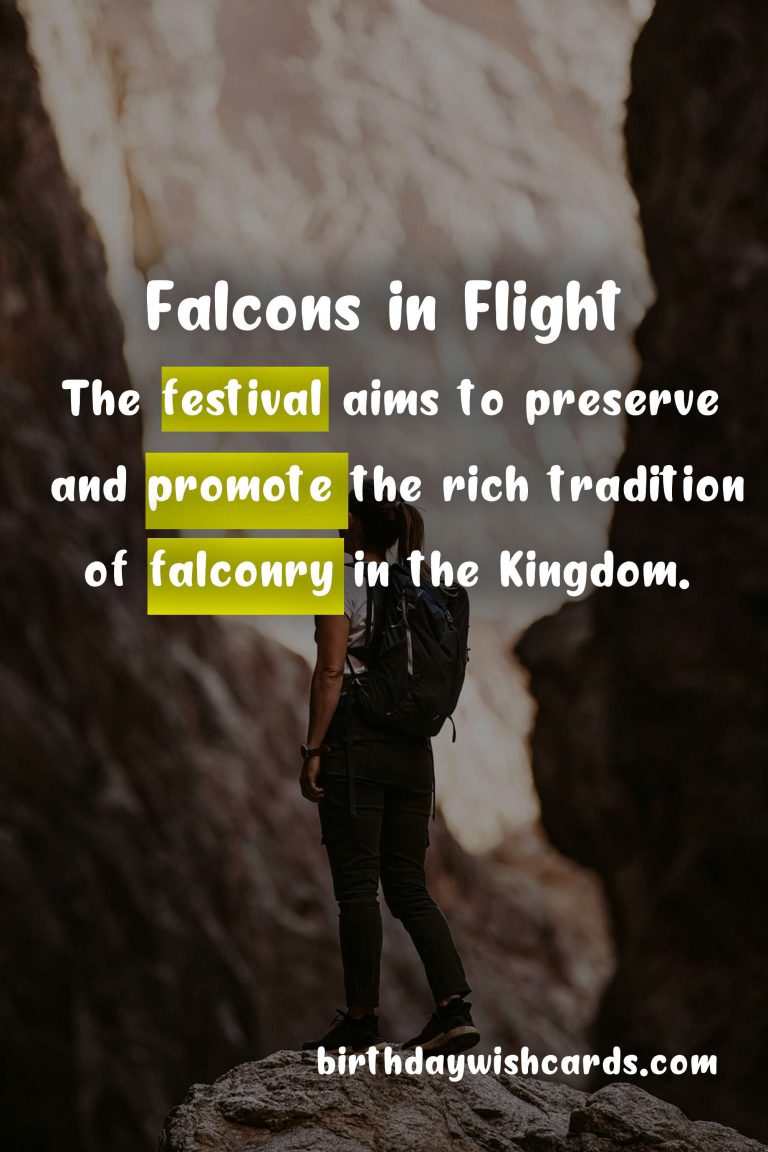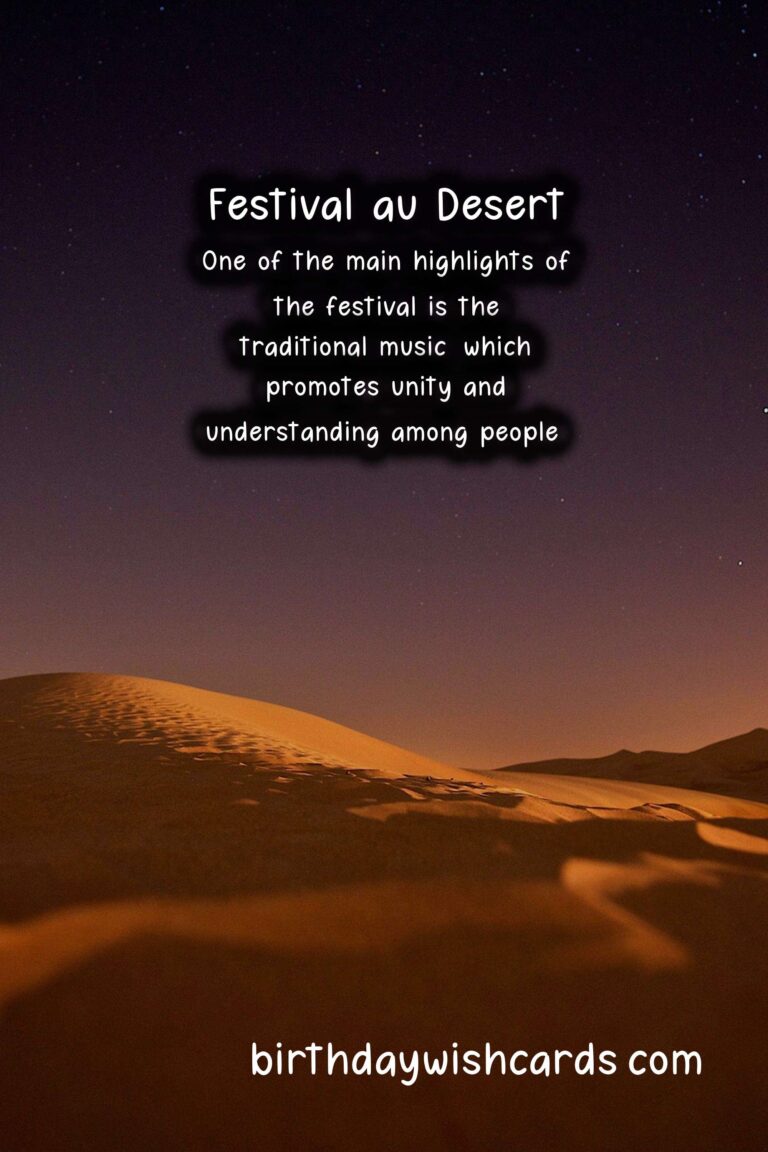Celebrate the Vibrant Culture of Colombia at the Manizales Folk Festival (January)
Colombia is a country full of life and color, and there’s no better way to experience the vibrant culture than at the Manizales Folk Festival in January. The festival, which is held in the city of Manizales in the coffee region of the country, showcases traditional music, dance, and arts from various regions of Colombia. The festivities last for eight days, and it’s an excellent opportunity for locals and tourists alike to come together and celebrate the rich heritage of the country.
The Manizales Folk Festival started in 1967, and since then, it has become one of the most important cultural events in Colombia. The festival’s main objective is to preserve and promote the country’s diverse cultural traditions and to showcase them to the world. Every year, the festival attracts thousands of visitors from all over the country and abroad, making it a must-see for anyone interested in learning more about Colombia’s folklore and traditions.
One of the highlights of the Manizales Folk Festival is the parade of traditional costumes. Different groups from different regions of Colombia participate, wearing colorful and elaborate costumes, including ponchos, skirts, hats, and masks. The parade is a spectacle of color and music, and it’s an excellent opportunity for visitors to see the diversity of Colombia’s traditional clothing and learn about the customs and traditions associated with each costume.
The festival also features various music and dance performances, with groups from different parts of Colombia showcasing their traditional music and dance styles. Visitors can watch performances such as the cumbia, the bambuco, and the vallenato, which are all part of Colombia’s cultural heritage. These performances are not only entertaining but also a great way to learn about the country’s history and culture.
The Manizales Folk Festival also has an arts and crafts fair, where visitors can find handmade goods such as pottery, embroidery, and traditional instruments. The fair is an excellent opportunity to support local artisans and also take home unique and authentic Colombian souvenirs.
In addition to the cultural events, the festival also offers a variety of gastronomic delights. Traditional dishes from different regions of Colombia are available for visitors to try, including the famous bandeja paisa, a hearty dish with rice, beans, avocado, fried pork, and chorizo. The festival also has a coffee fair, where visitors can taste some of the best Colombian coffee and learn about the country’s coffee production processes.
Finally, the Manizales Folk Festival also has plenty of activities for children, making it a family-friendly event. Children can participate in workshops, games, and other activities that teach them about Colombia’s culture and traditions. They can also learn how to make traditional crafts and dance to traditional music, making the festival a fun and educational experience for the whole family.
So, whether you’re a local or a tourist, make sure to add the Manizales Folk Festival to your list of things to do in Colombia. It’s a unique opportunity to immerse yourself in the country’s vibrant culture and experience a little piece of Colombia’s rich heritage.
The Manizales Folk Festival is an eight-day celebration of Colombia’s vibrant culture and traditions.
It started in 1967 and has become one of the most important cultural events in the country.
The festival aims to promote and preserve Colombia’s diverse cultural traditions.
Visitors can watch a parade of traditional costumes, showcasing the country’s rich cultural heritage.
The festival also features music and dance performances from different regions of Colombia.
The fair offers a variety of traditional foods and handmade goods from local artisans.
Children can also participate in activities that teach them about Colombia’s culture and traditions.
The festival is a must-see for anyone interested in learning more about Colombia’s folklore and customs.










#ManizalesFolkFestival #ColombianCulture







